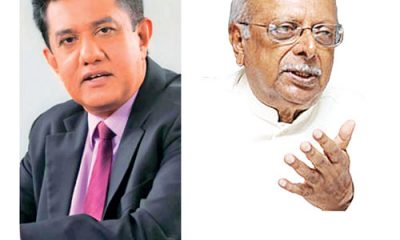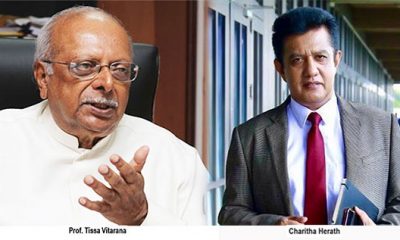News
Widespread mafia activities delay recovery from crisis

by Prof. Tissa Vitarana
An increasing number of people in Sri Lanka are facing greater and greater hardships due to the massive economic, social and political crises. Both external and internal factors are responsible, mainly the shortage of both Dollars (Foreign Exchange) and Rupees facing the Government and the people. The high degree of fraudulent Mafia activities in the Government Service is aggravating the situation as divulged by COPA and COPE.
The lack of Dollars is leading to shortages and high prices of essential imports like fuel, gas, medicines. and food. The main cause of the Dollar shortage is the large accumulated debt of USS 52 Billion. As annual debt servicing amounts to about $ 7 Billion our foreign reserves have come down from S 8 Billion to near zero. This in turn is leading the government to take more loans from the IMF. World Bank and other multilateral lending institutions. This will add to our debt burden while failing to solve our immediate Dollar need. To meet this immediate need the government is resorting to Sovereign Bond Loans which carry very high interest rates and have to be paid in a short period. The final outcome will be that Sri Lanka will be caught in debt trap, from which it is hard to escape. The USA, UK and Japan have agreed to help but the amounts that they are willing to supply are not adequate to meet our needs.
The Government’s reluctance to obtain oil and gas supplies from Russia at very low cost for fear of displeasing the USA is the height of folly. This would also have the advantage of being done using the currencies of Russia and Sri Lanka, the Rouble and the Rupee, without the need for US Dollars. The Chinese remain ready to help us. But they too are not being accommodated with any sense of goodwill. The Government seems to have opted to get our oil and gas needs at much higher cost from the Middle East. I fear that we shall get further into the debt trap and suffer both in the near and distant future.
The shortage of Rupees has led to the large scale printing of local currency notes, which has boosted inflation and increased the cost of living. The policy of the government to support and encourage the traders has led to a further rise in prices due to profiteering by middlemen. In contrast, the LSSP leader Dr. N.M. Perera, as the Finance Minister in the SLFP/LSSP/CP Coalition Government overcame the severe economic crisis of 1972/3, together with T.B. Illangaratna, he strengthened the Cooperative Movement, both producer as well as consumer. Thereby eliminating the profiteering of the middlemen. The farmer and entrepreneur got a fair price for his produce while the consumer got a fair deal. As essential food items were available at reasonable price the people did not go hungry. But regrettably the present government is not ready to intervene as Dr. N.M. Perera did and the outcome is that a majority of people are going hungry, If this situation continues there will be starvation and deaths. Therefore I appeal to the government to strengthen the cooperative movement and revive the Food Control Department.
The time has come for the government to take stern action to reform the Administrative Service so that the increasing Mafia activities by sections of the service, supported by some politicians which is increasing could be controlled. As the earlier Chairman of COPA, I was shocked by the extent of the frauds and corruption existing that led to a massive shortage of government income. For instance several of the largest companies, including one private bank, have not paid income tax for 6 to7 years. This was due to three Boards of Appeal being set up in the recent past in the Inland Revenue Department, each of which enables a company to avoid the payment for a period of 1 1/2 years or more. Thus this delay , I have no doubt, is the result of collusion between some of the officials and the companies. I recommended that there should be only one Board of Appeal and it should give its conclusions within 6 months, and that the lower amount the company considered reasonable (not less than half the tax that had been demanded) should be paid upfront on the due date. I regret to state that though more than a year has passed my recommendation to the Minister of Finance has not been implemented. In the 1972-73 crisis there was only one Board of Appeal and Dr. N.M. Perera acted firmly but fairly.
He was able to restore a balanced budget by 1974 and end his final year, 1975, as Minister of Finance by achieving a surplus, which was even appreciated by IMF. The foreign exchange reserve that had fallen was restored to nearly $4 billion, and Sri Lanka was able to overcome the crisis without getting further into debt, but was able to purchase 7 to 8 ships to handle our foreign trade. I must mention that the imperialist powers that did not raise a finger to help us to get through the crisis met the PM Sirimavo Bandaranaike, and said now that the economy has become stable they would help the with FDI, but on the condition that Dr. N.M. Perera and the LSSP were thrown out of the government. Though this was done. FDI did not come and the country did not develop, resulting in a massive defeat at the 1977 general election which enabled the pro- American JR Jaywardene (Yankee Dickey) led UNP government to come into power.
My COPA investigations showed that massive frauds and corruption are prevalent in every Department or institutions that we summoned. To give an example, in the Customs Department, Mercedes Benz luxury models were treated as dual purpose vehicle and given an HS code that was given to Ambulances, and a minimal duty was charged. This type of activity which is prevalent in nearly every Department and Institution, to a varying extent, has led to an officials-led matia arising supported by some politicians. Not surprisingly instead of achiewing growth in food production there has been a drop this year following the fertilizer fiasco. One can expect a further drop. Thus the food crisis leading to increased hunger, starvation and malnutrition will further increase, with the continuing shortage of fuel and chemical fertilizer. To make matters worse with the closure of private enterprises and job losses, there had been a significant increase of crime and drug trafficking.
The emigration of valuable professionals like doctors (with an estimated migration of 4000 this year) and of educated youth is resulting in a severe brain drain that would have a serious impact on the society as a whole. The socioeconomic crisis is bound to lead to further massive protests. Based on past experience it is very likely that President Ranil Wickramasinghe will come down hard, even using guns to crush any protest, leading to violence and bloodshed. Peaceful protests must be allowed.
Therefore it is essential that this Government be changed and a progressive government with a clear policy that would successfully meet this crisis be formed The LSSP is now a part of a new alliance of seven parties, named the Uttara Lanka Sabhagaya. It has been agreed that each member party would be free to come out publicly with its own policies, and if the need arises contest separately in constituencies where it is strong and the others are weak. This flexibility would enable us to contest several local bodies, and even at provincial and national level using our Key symbol. At the inauguration I made it clear that as an alliance we stood against racial religious and cast prejudice, as one Sri Lankan Nation. Unlike previous progressive alliances which were dominated by SLFP or SLPP, this danger will not exist with the new alliance.
News
Renewed Lanka’s Easter Bombing probe puts NTJ’s South India radicalisation network back under lens
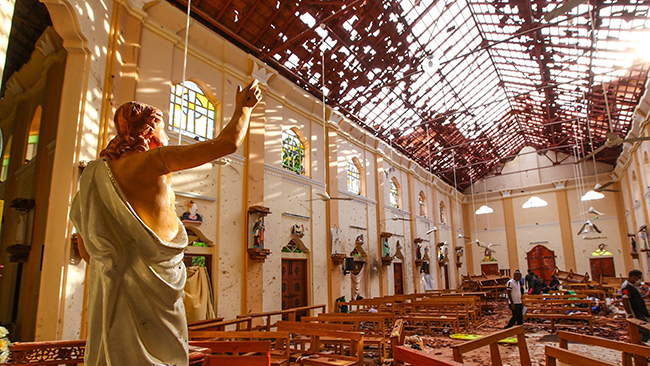
New Delhi (IANS):The arrest of Sri Lanka’s former Intelligence chief, Retired Major-General Suresh Sallay is a turning point in the investigations into the 2019 Easter Sunday bombings that killed 279 people.
The move was a bold one taken by President Anura Kumara Dissanayake who won the presidency in 2024.
He had promised that all persons involved in the attack would be brought to justice.
Sallay was made State Intelligence Service (SIS) chief in 2019 after Gotabaya Rajapaksa became President.
The allegation against Sallay was that he had permitted the attack to take place with the intention of influencing that year’s presidential election, which was eventually won by Rajapaksa.
Sallay had become a prominent figure in Sri Lanka and was widely credited with dismantling the LTTE. His arrest has led to a political storm and many state that it could revive tensions relating to the LTTE.
Ali Sabry, former Sri Lankan Minister for Foreign Affairs said that the developments are deeply troubling.
An Indian official said that the developments in Sri Lanka are being monitored closely.
On the question whether the LTTE issue would come back into the picture following the arrest of Sallay, the officer said that attempts are being made, but it would be very tough.
There have been several cases that the National Investigation Agency (NIA) has been probing concerning the revival of the LTTE.
The ISI, too, has tried its hand in ensuring the revival of the LTTE, but has not been successful so far.
To prevent the revival of the LTTE, both India and Sri Lanka have been working very closely.
Another official explained that the current ties with Sri Lanka have gone from ideological to an investment-led partnership.
Prime Minister Narendra Modi and President Dissanayake share a pragmatic relationship and this has gone a long way in ensuring cooperation on all fields including security, the official explained.
While some in Sri Lanka do not subscribe to Dissanayake’s decision on Sallay, the fact is that the Easter Bombing case has to be probed from every possible angle.
An Intelligence Bureau official says that a major concern today are the activities of the National Thowheeth Jama’ath (NTJ) and Jamathei Millathu Ibrahim (JMI), the two outfits responsible for this attack.
The NTJ in particular has a vast presence in South India and has managed to radicalise a large number of youth in Tamil Nadu and Kerala.
The mastermind of the attack, Mohammad Zahran Hashim was a frequent visitor to Tamil Nadu. He was also responsible for the radicalisation of Jamesha Mubeen who carried out an unsuccessful attempt to bomb a temple in Coimbatore in 2022.
The Indian agencies have been actively pursuing the role played by Hashim. A probe by the NIA in the South India radicalisation case revealed that the entire plot was being run by Hashim from Sri Lanka.
At least 50 of the 100 radicalisation videos seized by the agency were discourses by Hashim, who had close links with the Islamic State.
Officials say that Sallay could provide details to investigators about the module that Hashim ran.
This would come in handy for the Indian agencies who are probing cases directly linked to the NTJ in South India.
Hashim, who was the ring leader for the suicide bombers during the Easter Bombing had spent a considerable amount of time in India.
The Indian agencies would want to learn if any of the locals that Hashim interacted with had any idea about the Easter Bombings.
While in India, Hashim had focussed his radicalisation programmes mainly at Mallapuram, Coimbatore, Nagapattinam, Kanyakumari, Ramnathpuram, Vellore, Trichy and Thirunelveli, the NIA probe found.
Pallay has for now denied any links to the Easter Bombings.
Indian officials say that they do not want to comment on Pallay and his alleged links.However, it is important that the bombings are probed thoroughly since the activities of the NTJ have a direct bearing on India, particularly the southern states, the official also added.
News
Sajith warns: Don’t let trade union action stall cyclone relief
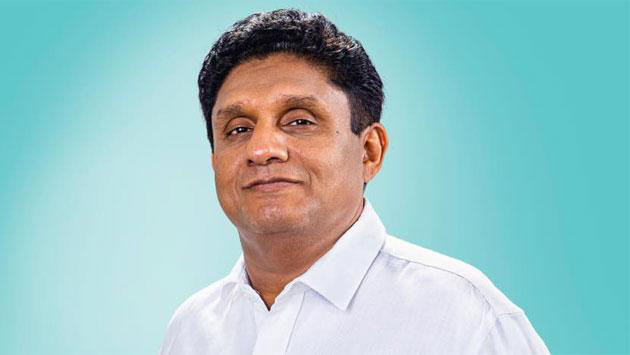
Opposition and SJB Leader Sajith Premadasa on Friday stressed that relief efforts for communities affected by Cyclone Ditwah must not be derailed by internal disputes, as several trade unions announced plans to withdraw from disaster relief duties.
Taking to ‘X’, Premadasa called on the Government to prioritise coordination and ensure uninterrupted assistance to families still awaiting aid.
“The Government must work closely with officers on the ground to ensure coordination and uninterrupted support. When families are still waiting, how can we allow for this confusion?” he questioned, emphasising that relief measures should not be delayed under any circumstances.
His remarks follow the decision by several trade unions representing Government officers engaged in disaster relief operations to launch trade union action beginning from Friday (27 February).
The unions announced their withdrawal from relief-related duties, citing unresolved issues affecting officers involved in post-disaster operations.
According to the unions, more than 93 days have elapsed since the widespread destruction caused by Cyclone Ditwah. During this period, disaster relief officers and Grama Niladharis have worked continuously, day and night, acting as key coordinators between the Government and affected communities. However, they claim that authorities have failed to adequately address longstanding concerns relating to officers engaged in relief work.
Meanwhile, Secretary to the President Nandika Sanath Kumanayake yesterday underscored the need to expedite relief and recovery initiatives.
Chairing a progress review meeting of the National Council for Disaster Management, he called for strengthened coordination among State institutions responsible for disaster response, noting that effective inter-agency collaboration is critical to delivering timely assistance to affected communities.
Efforts to accelerate recovery and maintain continuity in relief operations are ongoing.
News
Complaints filed with CID, Bribery Commission over alleged substandard coal deal
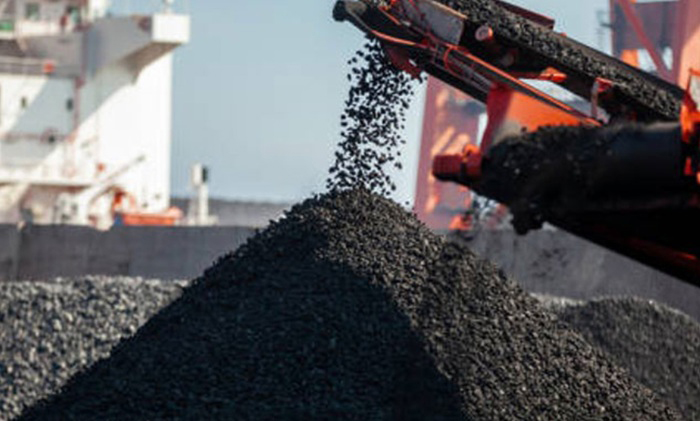
Allegations surrounding the importation of substandard coal intensified yesterday, with civil society representatives and Opposition MPs lodging complaints with the CID and the Commission to Investigate Allegations of Bribery or Corruption, calling for comprehensive investigations into the procurement process and alleged financial losses to the State.
A group of civil organisation representatives submitted a complaint to the CID on Friday (27 February), requesting a probe into what they described as irregularities in the coal procurement process and the resulting loss to the country.
Addressing the media, Ananda Palitha, Convenor of the Samagi Joint Trade Union Alliance affiliated with the SJB, alleged that tender procedures had not been followed properly and claimed that emergency purchases had facilitated corruption.
“The tenders are not called on time. The same company that was previously blacklisted after attempting to bring in substandard rice is now
being awarded the coal tender. They have been given time until July to get registered. The corruption is already confirmed. It is very clear with these emergency purchases,” he charged.
Palitha also expressed confidence that the current President would not interfere with investigations into the coal imports, drawing a comparison to the legal action instituted against former Minister Keheliya Rambukwella over the substandard medicine import controversy during the previous administration.
Meanwhile, a group of SJB parliamentarians filed a separate complaint with the Bribery Commission on Thursday (26 February) over the same issue. MPs Mujibur Rahman, Chaminda Wijesiri, Sujith Sanjaya Perera and Kavinda Jayawardena met Commission officials to formally submit their complaint.
Speaking to the media afterwards, MP Mujibur Rahman alleged that the company concerned had violated two key contractual conditions — by supplying substandard coal and by failing to deliver shipments within the stipulated timeframe.
He contended that either of these violations would be sufficient grounds to cancel the agreement, but claimed the Government was attempting to justify the transaction by asserting that no fraud had occurred.
“By now it has been revealed that this transaction is corrupt,” he said, adding that the Bribery Commission, which had previously conducted extensive investigations into allegations against the former Government, should similarly take action to recover what he claimed was Rs. 7,000 million in public funds lost due to the deal.Investigations into the matter are ongoing.
-

 Features6 days ago
Features6 days agoLOVEABLE BUT LETHAL: When four-legged stars remind us of a silent killer
-

 Business6 days ago
Business6 days agoBathiya & Santhush make a strategic bet on Colombo
-

 Business6 days ago
Business6 days agoSeeing is believing – the silent scale behind SriLankan’s ground operation
-

 Features6 days ago
Features6 days agoProtection of Occupants Bill: Good, Bad and Ugly
-
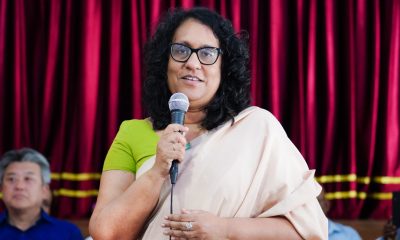
 News6 days ago
News6 days agoPrime Minister Attends the 40th Anniversary of the Sri Lanka Nippon Educational and Cultural Centre
-

 News6 days ago
News6 days agoCoal ash surge at N’cholai power plant raises fresh environmental concerns
-
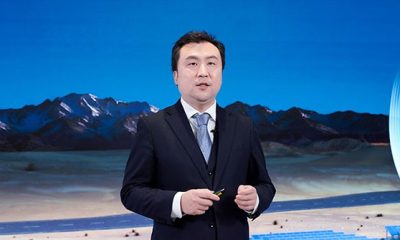
 Business6 days ago
Business6 days agoHuawei unveils Top 10 Smart PV & ESS Trends for 2026
-

 Opinion2 days ago
Opinion2 days agoJamming and re-setting the world: What is the role of Donald Trump?


